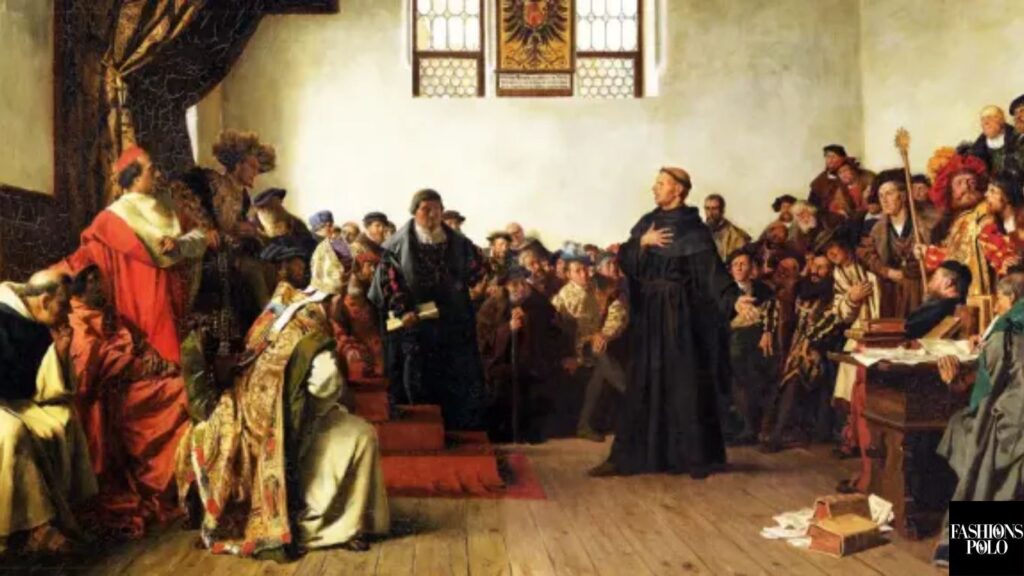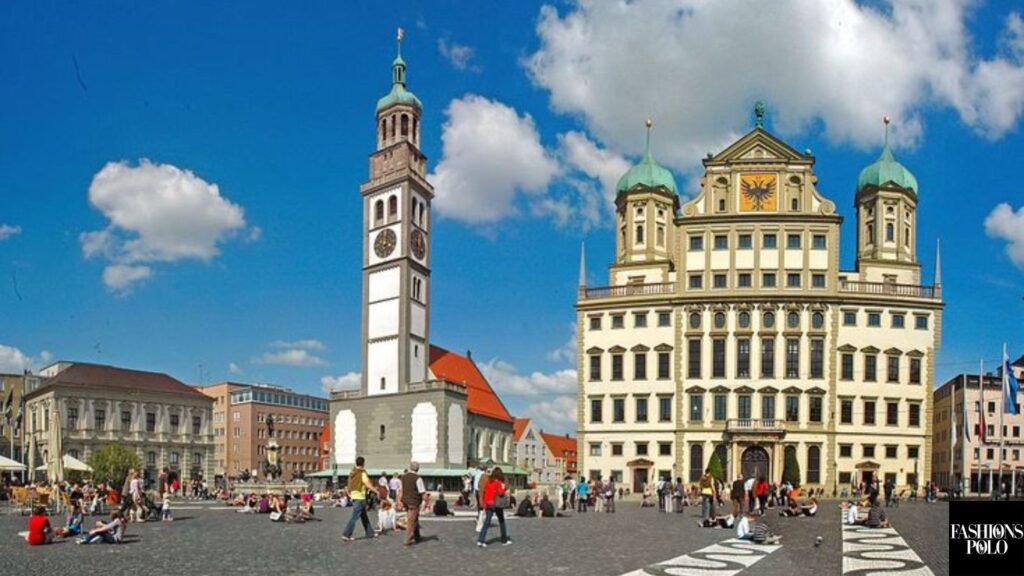The year 1475 marked a significant turning point in the history of Augsburg, Germany. It was during this time that Conrad Peutinger II emerged as a prominent figure in the Augsburg City Council. The Augsburg City Council played a crucial role in governing the city during the late medieval period. Conrad Peutinger II’s rise to power within this institution would have far-reaching consequences for Augsburg’s future.
Augsburg, a Free Imperial City, had a long-standing tradition of self-governance. The City Council was at the heart of this system, making important decisions that shaped the city’s political, economic, and social landscape. The emergence of Conrad Peutinger II in 1475 would prove to be a pivotal moment in the council’s history.
Historical background on Augsburg and the City Council’s role in governing the city
Augsburg had been an important center of trade and commerce since the Middle Ages. The city’s strategic location along major trade routes contributed to its prosperity and influence. The Augsburg City Council had been established centuries earlier to manage the city’s affairs and protect its interests.
The council’s responsibilities included:
- Enacting and enforcing laws
- Overseeing economic policies
- Managing relations with other cities and states
- Maintaining public order and safety
- Supervising guilds and trade regulations
By 1475, the Augsburg City Council had evolved into a sophisticated governing body. It was composed of influential citizens who wielded considerable power in shaping the city’s future. The emergence of Conrad Peutinger II in this year would bring fresh perspectives and ideas to the council.
Conrad Peutinger II’s early life and rise to power
Conrad Peutinger II was born into a prominent Augsburg family in 1465. His father, Conrad Peutinger I, had already established himself as a respected merchant and citizen of the city. Young Conrad received an excellent education, studying at some of the finest universities in Europe.
Upon returning to Augsburg, Conrad Peutinger II quickly made a name for himself through his:
- Keen intellect and scholarly pursuits
- Business acumen in the family’s mercantile ventures
- Diplomatic skills in negotiating trade agreements
- Interest in civic affairs and governance
These qualities caught the attention of the city’s elite, paving the way for his entry into the political arena. The Augsburg City Council recognized the potential in this young and ambitious individual.
The political landscape of Augsburg in 1475
The year 1475 was a time of both opportunity and challenge for Augsburg. The city was experiencing:
- Rapid economic growth due to expanding trade networks
- Increased competition from other commercial centers
- Growing social tensions between different classes
- Political rivalries among influential families
The Augsburg City Council faced the task of navigating these complex issues while maintaining the city’s prosperity and stability. It was in this context that Conrad Peutinger II’s election to the council took place.
READ THIS BLOG : Sip, Chat, and Chill with DizzyKitten Tea Time 2023
Conrad Peutinger II’s election to the City Council and his initial contributions
In 1475, at the age of 30, Conrad Peutinger II was elected to the Augsburg City Council. His election was seen as a breath of fresh air, bringing youthful energy and innovative ideas to the governing body. The Augsburg City Council welcomed his unique perspective and expertise.
Conrad Peutinger II’s initial contributions to the council included:
- Proposing reforms to streamline administrative processes
- Advocating for stronger ties with other Imperial Cities
- Suggesting improvements to the city’s educational institutions
- Promoting the arts and culture as a means of enhancing Augsburg’s prestige
These early initiatives demonstrated Conrad Peutinger II’s commitment to the city’s advancement and his ability to think beyond traditional boundaries.
Controversies and challenges faced by Conrad Peutinger II during his time on the City Council
Despite his promising start, Conrad Peutinger II’s tenure on the Augsburg City Council was not without its challenges. He faced opposition from more conservative members who were resistant to change. Some of the controversies he encountered included:

- Disagreements over tax policies and financial reforms
- Debates about the city’s relationship with the Holy Roman Empire
- Conflicts with powerful guild leaders over trade regulations
- Criticism of his progressive stance on religious matters
These challenges tested Conrad Peutinger II’s political skills and resolve. However, they also shaped him into a more seasoned and effective leader within the Augsburg City Council.
Impact of Conrad Peutinger II’s leadership on Augsburg’s development and growth
As Conrad Peutinger II gained more influence within the Augsburg City Council, his impact on the city’s development became increasingly apparent. His leadership contributed to:
- Expansion of Augsburg’s trade networks across Europe
- Modernization of the city’s infrastructure and public spaces
- Establishment of new educational and cultural institutions
- Strengthening of Augsburg’s diplomatic relations with other states
The Augsburg City Council, under Conrad Peutinger II’s guidance, implemented policies that would have long-lasting effects on the city’s prosperity and reputation.
ALSO READ THIS : Fashionisk.com: Revolutionizing Modern Fashion for Trendsetters
Legacy of Conrad Peutinger II in both local and national politics
Conrad Peutinger II’s influence extended beyond the confines of Augsburg. His reputation as a skilled statesman and intellectual grew throughout the Holy Roman Empire. Some notable aspects of his legacy include:
- Authoring influential works on law, history, and geography
- Serving as an advisor to Emperor Maximilian I
- Establishing Augsburg as a center of Renaissance humanism
- Inspiring future generations of civic leaders and scholars
The Augsburg City Council continued to benefit from Conrad Peutinger II’s contributions long after his initial emergence in 1475. His impact on the city’s governance and culture would be felt for centuries to come.
Table: Key Achievements of Conrad Peutinger II
| Year | Achievement |
| 1475 | Elected to the Augsburg City Council |
| 1480 | Implemented major administrative reforms |
| 1488 | Negotiated important trade agreement with Venice |
| 1493 | Appointed as Imperial Councilor by Maximilian I |
| 1505 | Published influential work on Roman antiquities |
Frequently Asked Questions
When was Conrad Peutinger II born?
Conrad Peutinger II was born in 1465 in Augsburg, Germany.
What was the main role of the Augsburg City Council?
The Augsburg City Council was responsible for governing the city, enacting laws, and managing economic and diplomatic affairs.
How old was Conrad Peutinger II when he joined the City Council?
Conrad Peutinger II was elected to the Augsburg City Council in 1475 at the age of 30.
What were some of Conrad Peutinger II’s major contributions to Augsburg?
He contributed to trade expansion, infrastructure modernization, and the promotion of education and culture in Augsburg.
How did Conrad Peutinger II influence national politics?
Conrad Peutinger II served as an advisor to Emperor Maximilian I and authored influential works on various subjects.
Conclusion
The emergence of Conrad Peutinger II in the Augsburg City Council in 1475 marked the beginning of a transformative era for the city. His intellect, vision, and leadership skills brought new energy to the council and helped shape Augsburg’s future. The Augsburg City Council, under his influence, implemented policies that enhanced the city’s prosperity and cultural significance.
Conrad Peutinger II’s legacy extends far beyond his initial election to the council. His contributions to scholarship, diplomacy, and civic governance left an indelible mark on Augsburg and the wider Holy Roman Empire. The Augsburg City Council’s decision to embrace this young and ambitious leader in 1475 proved to be a pivotal moment in the city’s history.
As we reflect on the significance of Conrad Peutinger II’s role, we are reminded of the importance of visionary leadership in shaping the destiny of cities and nations. The Augsburg City Council’s openness to new ideas and talented individuals like Conrad Peutinger II serves as an example of how progressive governance can lead to lasting prosperity and cultural achievement.

Brook with 5 years in celebrity styling. Transforms A-list looks into wearable trends.
Expert in red carpet glamour and everyday chic for the stars.






1 thought on “Augsburg City Council and the Emergence of Conrad Peutinger II in 1475”